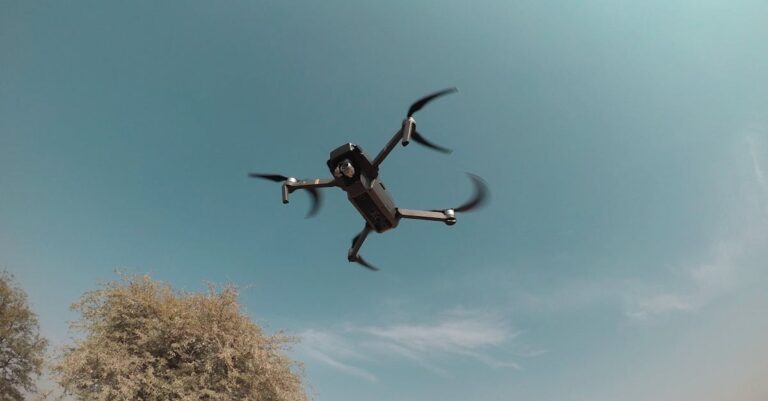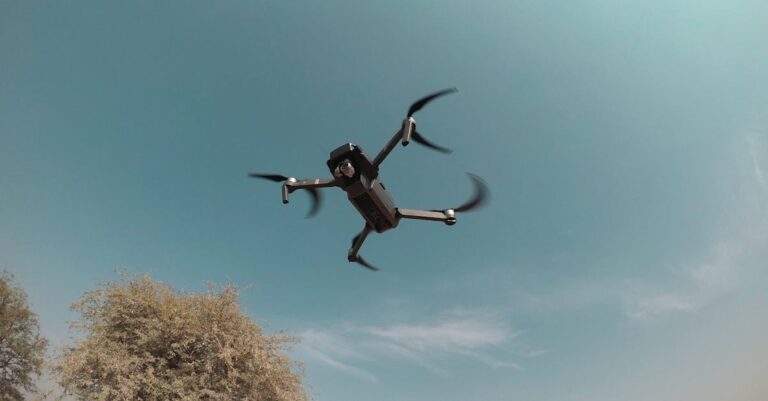In the bustling skies of New Jersey, drones are taking flight and transforming the way people experience their surroundings. With a mix of innovation and a dash of excitement, these flying wonders are capturing breathtaking views and making everyday tasks a breeze. Imagine a world where your pizza arrives via drone—now that’s a game changer!
Table of Contents
ToggleOverview of Drones in New Jersey
Drones have become a key component in New Jersey’s technological landscape. Numerous industries utilize them, enhancing efficiency in tasks such as monitoring wildlife, inspecting infrastructure, and capturing breathtaking photographs. Regulations for drone operation are enforced by the Federal Aviation Administration (FAA) along with state-specific guidelines to ensure safety.
Local businesses in New Jersey have begun integrating drones into their operations. For instance, real estate agents leverage drones for aerial photography to showcase properties effectively. Retailers explore drone deliveries, aiming to meet the growing demand for fast service.
Educational institutions also embrace this technology. Various universities offer specialized programs focused on drone engineering and pilot training. Partnerships with businesses enhance student learning while contributing to workforce development in this emergent field.
The popularity of drone racing events has surged across the state, attracting enthusiasts who compete in thrilling contests. Many communities host drone-flying clubs, fostering camaraderie among hobbyists.
Safety remains a top priority. Awareness campaigns inform the public about responsible drone usage, addressing concerns related to privacy and airspace regulations. Overall, drones shape New Jersey’s future, transforming various sectors and enhancing daily life.
Regulations for Flying Drones in New Jersey
Drones in New Jersey face a variety of regulations. Safety and compliance shape the flying landscape significantly for drone operators.
Federal Regulations
The Federal Aviation Administration (FAA) oversees drone regulations on a national level. Operators must register drones weighing over 0.55 pounds. Flying under 400 feet maintains safety and avoids manned aircraft. Visual line-of-sight operation ensures drones remain within sight. Night flying is not permitted without specific waivers. Additionally, no flying near airports or in controlled airspace occurs unless authorized. These federal guidelines help protect both operators and the public.
State and Local Regulations
New Jersey has specific laws governing drone usage. Local municipalities may enact their regulations, impacting where drones can fly. Restricted areas include parks and school zones, which often require permissions. Privacy laws also highlight that capturing images of private properties without consent may lead to legal issues. Ensuring adherence to state laws, operators should check local regulations before flying. These measures contribute to responsible drone use while preserving public safety and privacy.
Popular Locations for Drone Flying in New Jersey
Drones are popular in various scenic locations across New Jersey, offering enthusiasts unique perspectives and experiences. The following areas stand out for drone flying.
Parks and Open Spaces
State parks provide ample opportunity for drone pilots to navigate open skies. Watchung Reservation features diverse landscapes, from mountains to lush forests, appealing for aerial photography. Similarly, Nockamixon State Park offers sweeping views of lakeside vistas, attracting many operators. Other parks, like Liberty State Park, allow drone enthusiasts to capture breathtaking shots of the Manhattan skyline. Remember to check local regulations, as some parks may impose specific restrictions on flying.
Coastal Areas
Coastal locations along New Jersey’s shoreline enhance the drone flying experience. Sandy Hook, with its expansive beaches and historic landmarks, presents excellent photography opportunities. Cape May Point State Park, renowned for its natural beauty, showcases stunning dunes and vibrant sunsets. Areas like Island Beach State Park allow flying above tidal marshes and along coastal waters, enabling spectacular footage. Before taking flight, reviewing any guidelines or restrictions for these coastal areas remains essential.
Benefits of Using Drones in New Jersey
Drones offer numerous advantages across various sectors in New Jersey, enhancing productivity and creativity.
Photography and Videography
Aerial photography benefits significantly from drone technology. Capturing stunning images and videos from elevated angles becomes easier with drones. Events like weddings and corporate functions gain an extra touch of professionalism with drone footage. Real estate marketing transforms, highlighting properties from unique perspectives. The ability to access hard-to-reach locations adds another dimension to film production. Local photographers and videographers increasingly turn to drones for innovative projects.
Agricultural Applications
Drone technology provides essential support in agriculture. Crop monitoring improves with drones, allowing farmers to assess plant health efficiently. Precision agriculture becomes attainable through aerial imagery, helping identify areas needing attention. Pest management receives a boost from drones, making it easier to target specific regions instead of broad applications. Irrigation practices also benefit, as drones can detect water stress in crops. Farmers in New Jersey increasingly adopt drone solutions to maximize yield and reduce operational costs.
Challenges of Drone Flying in New Jersey
Drone flying in New Jersey comes with unique challenges. Operators must navigate a variety of factors that can impact their experience.
Weather Conditions
Weather conditions significantly affect drone operations. Strong winds can make flying difficult, increasing the risk of crashes. Rain or inclement weather can lead to visibility issues, making it hard to maintain a visual line of sight. Additionally, temperature fluctuations can impact battery performance, reducing flight time. Operators should consistently check weather forecasts and adapt their flying plans accordingly.
Airspace Restrictions
Airspace restrictions pose considerable challenges for drone operators. Numerous areas in New Jersey, particularly near airports, are subject to federal regulations that limit drone activity. The FAA designates no-fly zones that include critical infrastructure and populated areas to ensure safety and privacy. Local ordinances may impose further limitations, barring flights in specific parks or zones without permission. It’s crucial for operators to stay informed about these restrictions to avoid fines and accidents.
Drones are undeniably transforming the landscape of New Jersey. Their innovative applications are enhancing various industries while providing unique experiences for enthusiasts. As the technology continues to evolve, it’s clear that drones will play an even more significant role in daily life and business operations.
With the right knowledge of regulations and safety practices, operators can enjoy the many benefits drones offer. Whether capturing breathtaking aerial views or optimizing agricultural practices, the future looks bright for drone enthusiasts and professionals alike in New Jersey. The ongoing growth of this technology promises to foster creativity and efficiency across the state.





